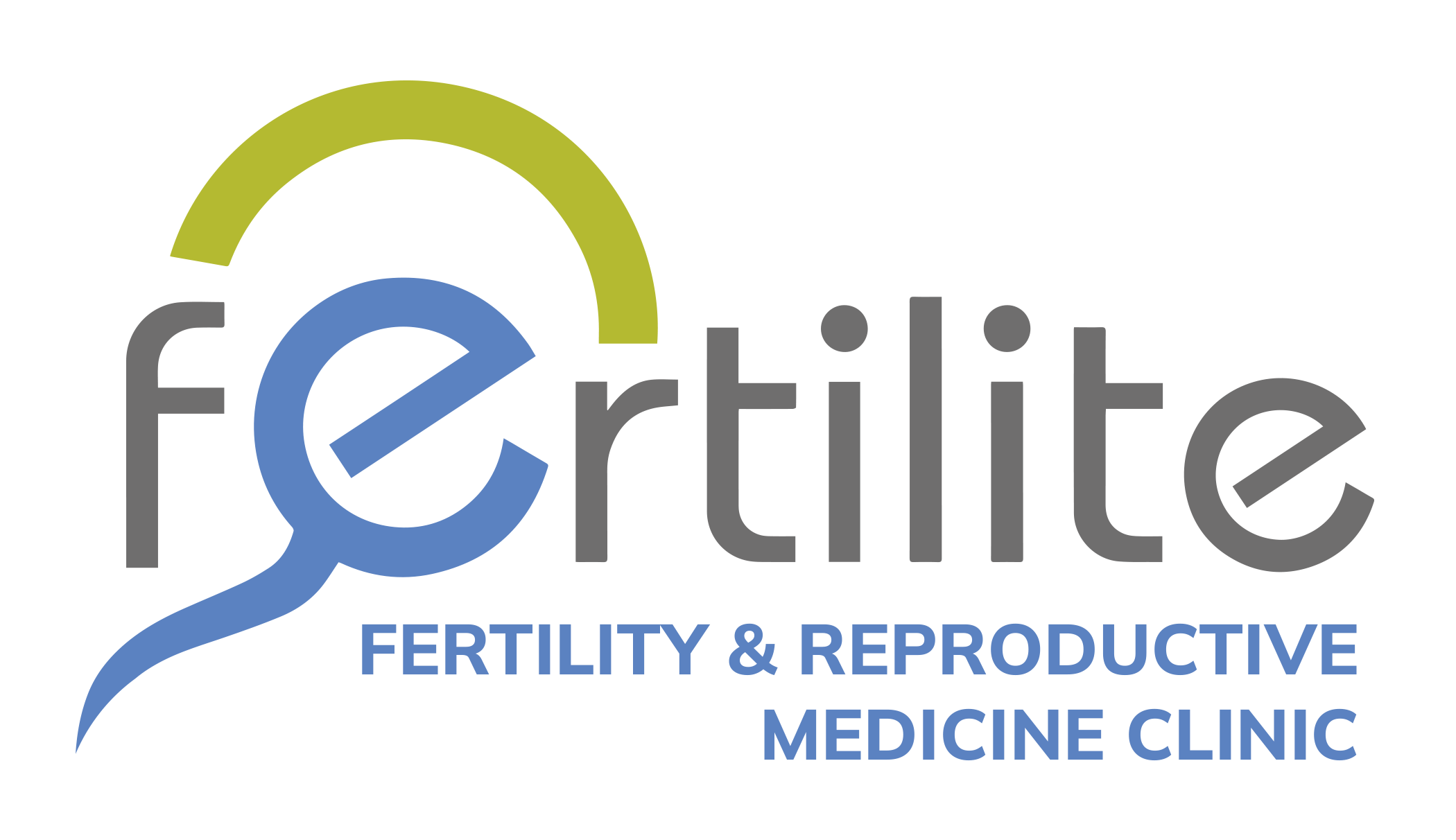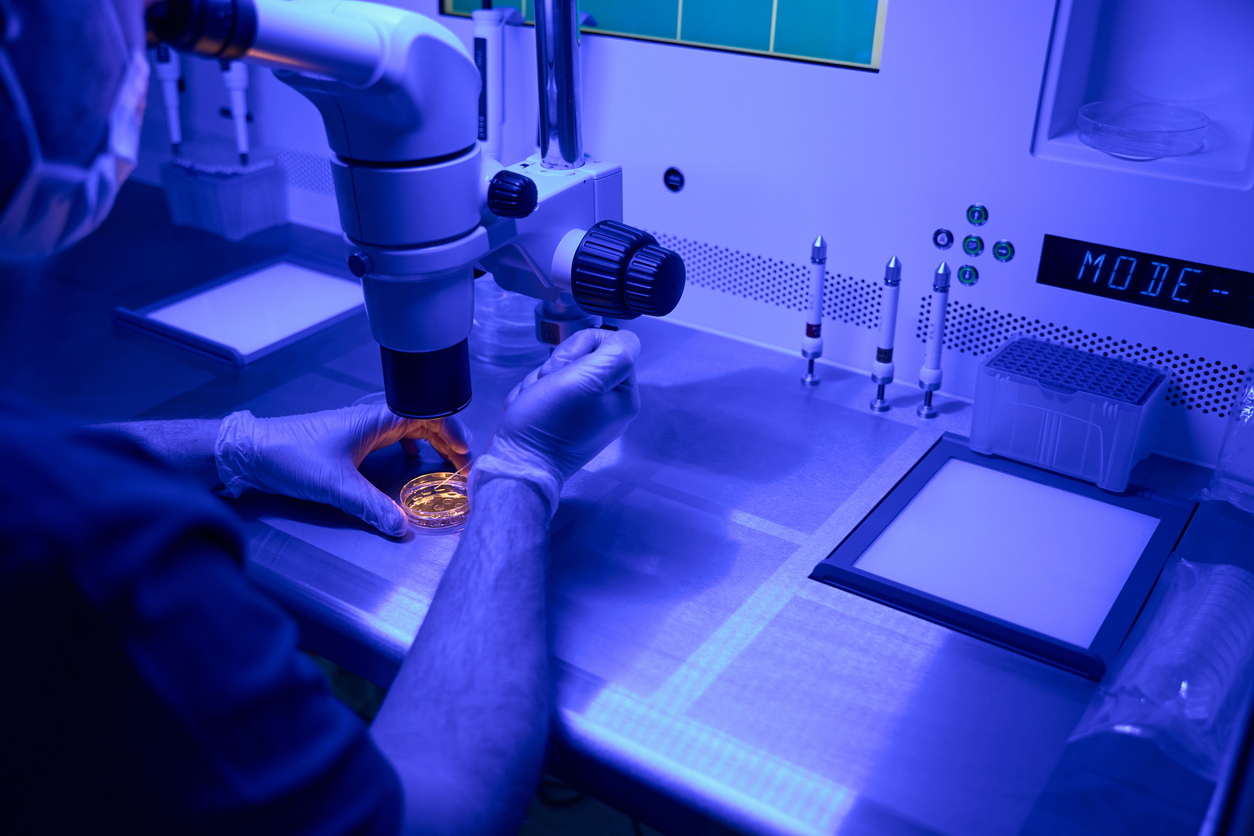Data on preimplantation genetic testing in embryos
- Preimplantation genetic testing (PGT) examines embryos created through in vitro fertilization (IVF) for genetic and chromosomal abnormalities that can cause birth defects, miscarriages, or prevent the embryo from implanting in the uterus.
- Preimplantation genetic testing also looks for chromosomal problems that can result in conditions in the child, such as Down syndrome, and defects in individual genes that can result in cystic fibrosis and other diseases.
- Embryo PGT can also determine the genetic gender of the embryo before transfer.
- PGT is a new term in fertility medicine that replaces the more familiar terms of preimplantation genetic diagnosis (PGD) and preimplantation genetic screening (PGS), while fulfilling the same functions as those tests.
- The process involves taking test cells from an embryo as it develops in the laboratory and evaluating the sample for chromosomal disorders or genetic defects, with the goal of implanting only a healthy embryo (or embryos).
- People who should consider PGT include known or suspected carriers of a genetic disorder, older women or those with ovulation problems, couples experiencing recurrent miscarriages, and those who have had previous failures in IVF.
What is preimplantation genetic testing (PGT)?
Advancements in assisted reproductive technology allow fertility specialists to evaluate the genetic health of embryos created through IVF before they are transferred to the mother’s uterus. The most proven technique for genetic testing of embryos is preimplantation genetic testing, or PGT.
Why undergo PGT?
PGT seeks certain genetic conditions that can result in the development of birth defects or even death in a newborn shortly after birth.
PGT also increases the chances of IVF success, as genetic abnormalities are also the cause of many cases of implantation failure and miscarriages after infertility treatments.
How is PGT performed?
Preimplantation genetic testing involves performing small biopsies on 5 or 6-7-day-old embryos created through IVF. These samples are evaluated by a genetic laboratory to identify embryos with chromosomal abnormalities or specific genetic defects.
This allows the fertility specialist to select only genetically healthy embryos for use in the embryo transfer part of IVF, in which the embryos are placed in the woman’s uterus for implantation.
Data shows a pregnancy rate of over 65% using PGT, which is much higher than previous approaches to embryo genetic testing and IVF without genetic testing. As PGT technology continues to improve, it becomes more accurate and can identify subtle aspects of genetic abnormalities in embryos.
Why genes are important in fertility medicine?
Genes, the DNA sequences that serve as a blueprint for a person’s growth, are found in chromosomes. Each human has two copies of each chromosome, one inherited from the mother and one from the father, in 23 pairs of chromosomes.
Genetic diseases, traits, and disorders, known as recessive conditions, are passed from parents to children as a change or mutation in a pair of chromosomes. Genetic recessive conditions include Down syndrome, cystic fibrosis, or sickle cell anemia.
If a person carries only one recessive gene within a pair of chromosomes, it means they do not have the disease but can genetically transmit it to a child. These people are called carriers. If both parents (or donors) are carriers of the same recessive condition, each can pass on a gene to the child. That child will inherit a pair and have a 1 in 4 chance of being affected by the condition.
Common questions about preimplantation genetic testing
How does PGT improve the success of IVF?
PGT identifies genetically normal embryos for use in implantation during embryo transfer, greatly affecting the success of embryo implantation and term pregnancy.
Is there an additional cost for PGT?
Preimplantation genetic testing is an additional cost to the cost of IVF treatment. However, adding PGT can also save money by increasing the chances of success in a single IVF cycle, eliminating the cost of multiple embryo transfers or miscarriages.
Can PGT help with family balancing?
PGT can also reveal information about gender, and parents can select the gender of the healthy embryo they wish to implant.
PGT is the new name for embryo genetic testing PGD and PGS
Preimplantation genetic testing is a change in the way fertility medicine refers to the previously called PGD (preimplantation genetic diagnosis) and PGS (preimplantation genetic screening). PGD looks for a specific defective gene, and PGS looks for abnormalities in the number of pairs of chromosomes.
PGT evaluates the same things in the following three types of tests.
PGT-M (monogenic/single gene)
PGT-M tests a single genetic defect or mutation (monogenic), such as cystic fibrosis, BRCA1, muscular dystrophy, Huntington’s disease, and fragile X syndrome.
PGT-A (abnormal number of chromosome pairs)
PGT-A tests for the presence of an abnormal number of chromosomes in a pair of chromosomes, either one less or one extra (called aneuploidy). Aneuploidy can cause conditions such as trisomy 21, or Down syndrome, and is a strong indicator of birth defects or miscarriages.
PGT-SR (structural rearrangements)
PGT-SR tests for rearrangements in chromosomal structure, which often cause recurrent miscarriages and embryos with incorrect chromosomes, and also greatly reduces the chance of live births.
Examples of some evaluable genetic diseases
- Preconception carrier screening
If both parents are carriers of a recessive genetic disorder, there is a 25% chance their child will have the disorder and a 50% chance the child will be a carrier. Without testing, parents may not know they are at risk of passing on a devastating genetic disorder to their children.
- Sickle cell screening
It is estimated that 2.5 million Americans carry the sickle cell trait. This disease forces the body to create sharp, hard red blood cells that block normal blood flow to key organs.
- Spinal muscular atrophy screening
Spinal muscular atrophy (SMA) is a group of inherited genetic disorders that result in progressive loss of muscle mass. It is one of the most common genetic conditions affecting children, with an estimated 1 in 6,000 babies born with SMA worldwide each year.
- Cystic fibrosis screening
One of the most common inherited genetic diseases, cystic fibrosis causes a buildup of mucus in the pancreas and lungs, making breathing difficult and causing frequent lung infections.
- Aneuploidy screening
This is the evaluation of embryos to determine if they have the correct number of chromosomes or an incorrect chromosomal arrangement. Down syndrome is a possible result of an aneuploid embryo.
- Jewish genetic diseases
Tay-Sachs disease is just one of many common genetic diseases in the Ashkenazi Jewish population. One in every three Ashkenazi Jews in this country carries at least one Jewish genetic disease.
Candidates for PGT
The following couples or individuals may benefit from preimplantation genetic testing:
- Individuals or couples with known genetic conditions or family histories of genetic conditions.
- Women over 35 years old or those with ovulation difficulties.
- Couples with a history of recurrent miscarriages.
- Couples with previous unsuccessful infertility treatments.
- Couples with a diagnosis of unexplained infertility.
Here are some considerations when deciding whether or not to undergo preimplantation genetic testing:
- Like with many tests, PGT may not be 100% accurate, as it is considered a screening test, not a diagnostic test. There is still a possibility of implanting an embryo with a disorder.
- A pregnant woman who underwent PGT because she was considered at risk of having a defective embryo still needs to undergo prenatal genetic testing.
- Biopsy, handling, freezing, and thawing result in damage to about 5% of embryos, leading to implantation failure.
Read more about in vitro fertilization (IVF), the ROPA method for same-sex couples, and performing surgeries before IVF to treat infertility caused by endometriosis.




